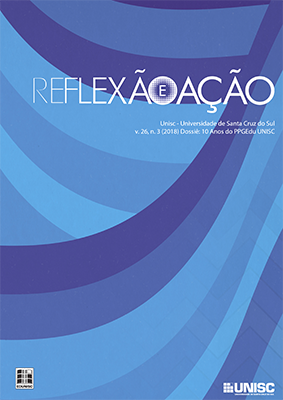THE GENEALOGY OF THE SUBLATION IDEA BY BLIND PEOPLE IN BRAZIL: A STUDY BASED ON L. S. VYGOTSKI
DOI:
https://doi.org/10.17058/rea.v26i3.11262Keywords:
Higher Education, Cultural-Historical Psychology, Defectology, Blind people, Sublation.Abstract
This study aims to discuss the concept of sublation. It was originated from the graduation of blind people in higher education in Brazil, based on students’ reports and on L. S. Vygotski’s work. The qualitative investigation that supported this study was carried out as case studies. Nine blind people who had completed their college education were taken as subjects. Data was collected by interviews and document analysis (essays). This data underwent the procedures of discourse textual analysis. According to the participants, the idea that is shown in media that blind people who have completed higher education are heroes is mistaken. The insights of the research subjects, discussed on the basis of the concept of sublation proposed by Vygotsky, turn to an elevation of the blind through the mediation of cultural instruments.Downloads
Downloads
Published
How to Cite
Issue
Section
License
The submission of originals to this journal implies on the transference, by the author(s), of the printed and digital publishing rights. The author´s rights to the published articles are the author´s, the journal has the rights over the first publication. The author(s) can only use the same results in other publications, indicating clearly that this journal was the original publisher. Since we are an open access journal, the free use of articles is permitted for educational and scientific applications, as long as they inform the source according with the CC-BY license from Creative Commons.


